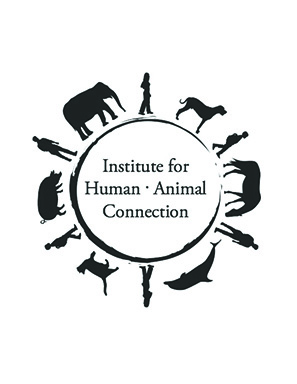2023 Research Highlights
Leading the Way in Human-Animal-Environment Interaction Research

Research at the University of Denver’s Institute for Human-Animal Connection (IHAC) uses innovative approaches to answer seminal questions in the human-animal-environment interactions field. Across its research portfolios in youth development, trauma, and animals & communities, IHAC’s unique research informs practitioners, communities, and the field at large. This year our incredible staff accomplished this work with the support of our collaborators and our team of graduate research assistants and MSW interns from the Graduate School of Social Work (GSSW) and other academic departments here at the University of Denver.
In July, we welcomed our 2023-2025 IHAC Research Fellow, Kaleigh O’Reilly, and will be initiating the search for our 2024-2026 fellow early next year. We were excited to have GSSW and IHAC alumna Ximena Salgado-Santamaria join us as an IHAC Research Associate to work with PetSmart Charities on their access to veterinary care grants program. Throughout the year, we had several staff members leave to pursue research and practice that builds on their experience gained at IHAC, including Sloane Hawes and Celeste Morales who left to conduct research for Companions and Animals for Reform and Equity, Erin Flynn who will be concentrating on her PhD dissertation research within a specific area of the institute’s research portfolio, and Ashley Taeckens, who took a position as the Director of Research at Hope Squad upon completion of her IHAC Research Fellowship to focus on suicide prevention for youth.
Working together, the IHAC Research team had another year of producing innovative research with practice and policy implications. We produced a steady output of publications that included six peer-reviewed manuscripts, another seven manuscripts submitted for peer review, and a series of reports for collaborating organizations. This year’s research highlights included:
Youth Development Research Portfolio
- Initial analysis of behavioral data coded from videos recorded in classrooms at Green Chimneys before and after students went to the farm program, health class (active control), or stayed in the classroom (passive control) indicates that interacting with the animals caused the greatest increase in self-regulation upon return to class. The findings of the research project at Green Chimneys continue to support the incorporation of nature-based interventions into their clinical model. The team continues these intensive data measures going into 2024.
- Positive trajectories of development were measured for students at Green Chimneys with the short form of the positive youth development instrument. This work is showing that the overall Green Chimneys experience positively affects student outcomes, as well as validating this widely employed instrument for its first use with a clinically defined population. Look for publication of this work in early 2024 and its extension into understanding the trajectories of specific clinical diagnoses at Green Chimneys.
Trauma Research Portfolio
- In a study aimed at furthering our understanding of how pet dogs affect their owner’s stress levels, participating dog owners were randomly assigned to participate in a gold standard laboratory stress inducing exercise with or without their pet dog present. Heart rate data and biomarkers of different stress pathways measured in blood and saliva collected before and after the stress event showed that, beyond just reducing stress, the dogs maintained their owners in a healthy stress response zone. This novel finding provides a new foundation for understanding how dogs positively affect human health and demonstrates that molecular biology can be employed to explore nuances in human-animal-environment interactions. These methods will be leveraged in a study of how psychiatric service dogs reduce symptoms in military veterans with PTSD and the effects of this work on the dogs themselves launching in early 2024.
- A retrospective study of individuals who had been in prison-based dog training programs prior to their release compared to an equal number of statistically matched individuals who had not been in dog programs measured a 15% improvement in recidivism for those who worked with dogs while incarcerated. To identify potential mechanisms that explain this difference, qualitative interviews have been conducted with previously incarcerated individuals who participated in dog training. Initial findings identify several potential mechanisms underlying the increased ability to function in society post release that are driven by interacting with dogs, including increased empathy and changes in perspectives on race from having to work on training teams across the prison racial code. Look for publications on these quantitative and qualitative studies in early 2024.
Animals & Communities Research Portfolio
- IHAC is working with PetSmart Charities to help launch and evaluate its Diverse Communities Veterinary Incubator Grants program. The team is working with ten grantee organizations to develop community-specific access to veterinary care programs that will launch in 2024 and be evaluated using a survey instrument developed from focus group findings. Meanwhile, the next cohort of ten communities for the program have been identified. The reiterative rounds of grantees will allow PetSmart Charities and IHAC to refine the program to maximize its impacts on families and their pets in historically marginalized communities.
- In collaboration with HSUS Pets for Life, IHAC is extending its expertise in community engagement to better understand the impacts of animal law enforcement on community health and well-being. The portfolio of research started with a qualitative study with animal law enforcement officers in collaboration with the National Animal Care and Control Association (NACA) that published in late 2022. The findings from this qualitative study informed the development of a quantitative survey, launched in October 2023, to more broadly understand officers’ community engagement practices and policies. The next year will see the results of that survey and of a GIS mapping study of over two million animal law enforcement incidents in seven large metropolitan jurisdictions to identify community enforcement patterns and trends. A qualitative interview study will also be conducted with residents in one of the communities experiencing higher than average enforcement rates to better understand residents’ perspectives on officer engagement practices and policies. Overall, this series of studies is aimed at informing the development of better practices and policies for protecting the health and well-being of pets and their families in all communities.
Our research team is excited and looking forward to the great things planned for 2024!
